Physical Address
304 North Cardinal St.
Dorchester Center, MA 02124
Physical Address
304 North Cardinal St.
Dorchester Center, MA 02124
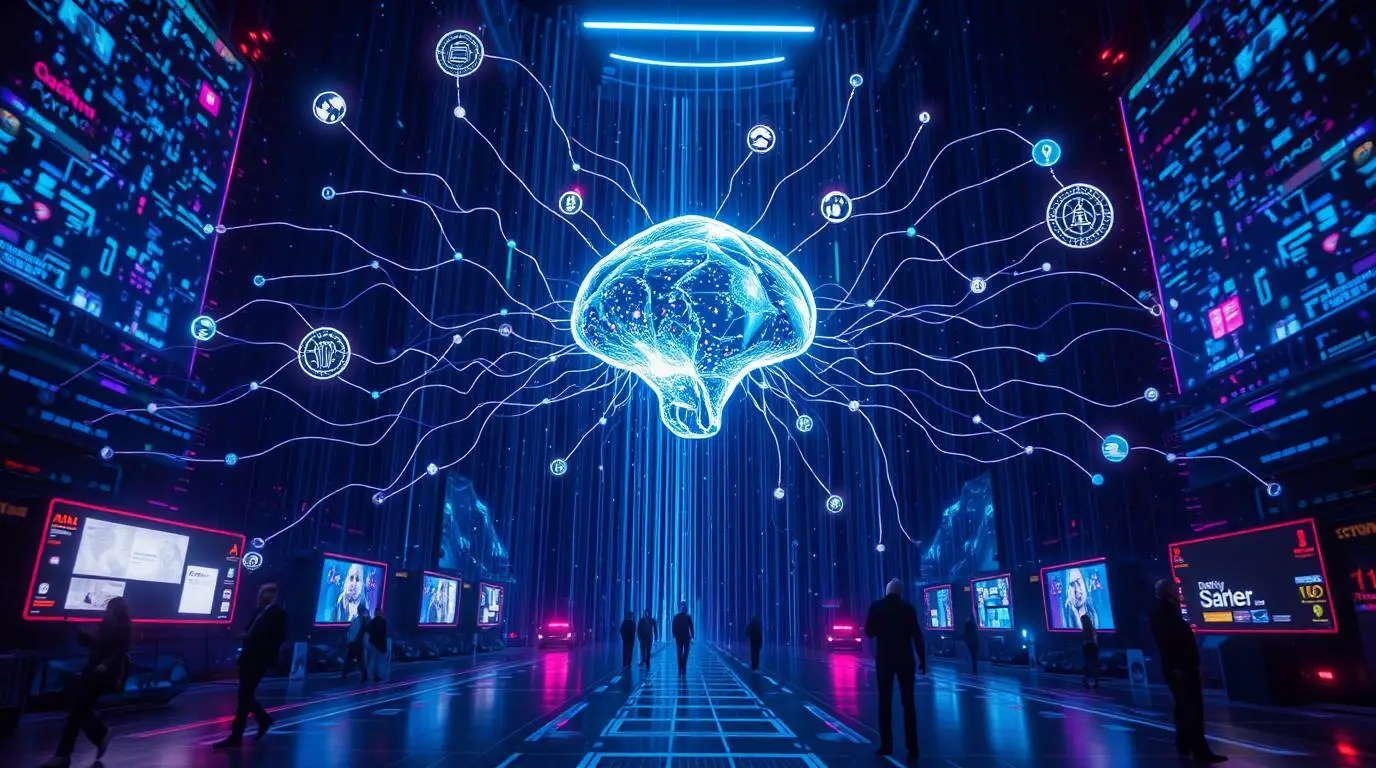
Tired of marketing overwhelm? AI Marketing Automation is here! Explore 15 game-changing ways AI tools can revolutionize your email, social media, content personalization, lead scoring, and ad campaigns in 2025, helping you save time and boost your ROI.
Do you feel like you’re drowning in marketing tasks that eat away at your precious time? I’ve been there too. The endless social media posts, email campaigns, and customer follow-ups nearly drove me to burnout—until I discovered the game-changing power of AI marketing automation.
In today’s fast-paced digital landscape, staying competitive means working smarter, not harder. That’s where AI marketing automation comes in, transforming how businesses of all sizes approach their marketing strategies. Whether you’re a freelancer juggling multiple clients or a side hustler looking to scale, AI tools can help you achieve more with less effort.
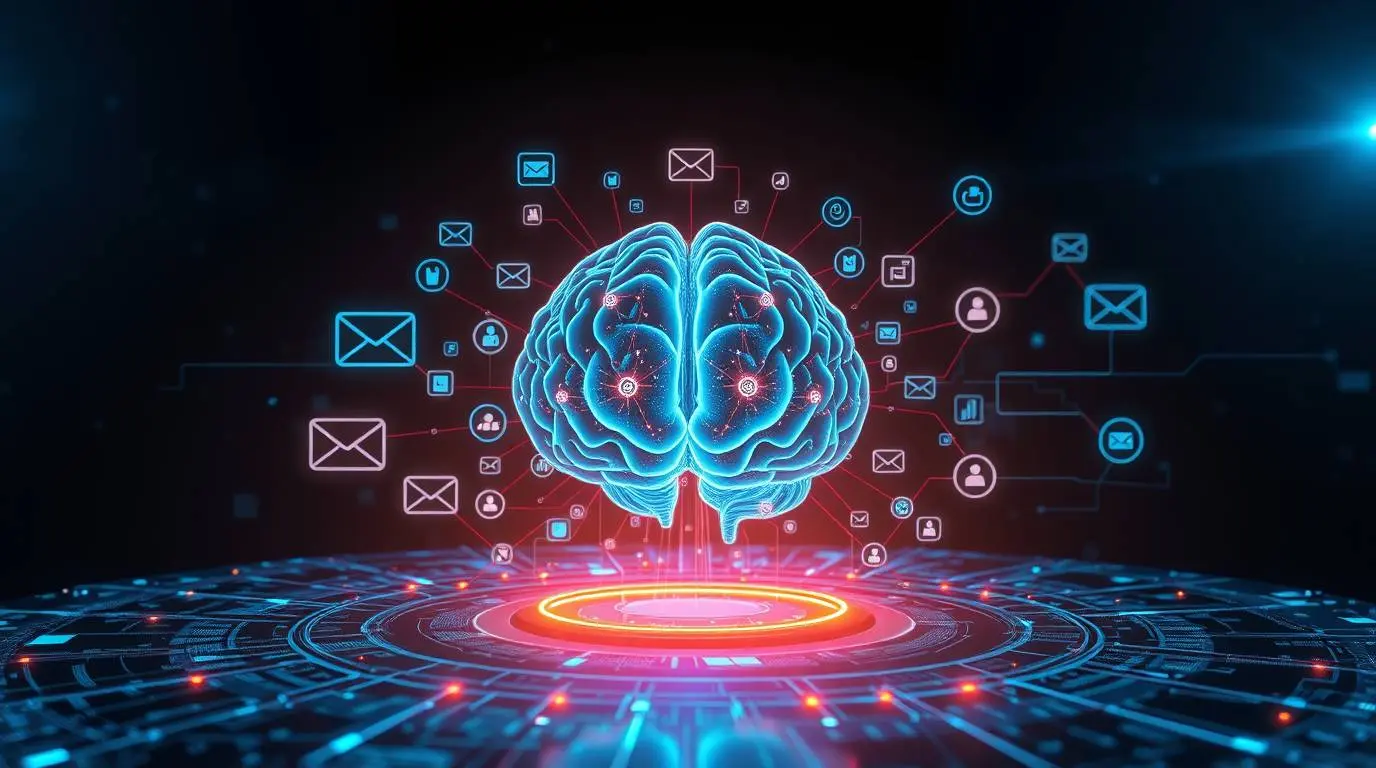
AI marketing automation combines artificial intelligence technologies with marketing automation systems to optimize and personalize marketing efforts. Unlike traditional marketing automation, which relies on predetermined rules and workflows, AI marketing automation uses machine learning algorithms to adapt, learn, and make decisions based on real-time data.
I remember when I first started my freelance business—I spent hours scheduling social posts and sending follow-up emails. Now, my AI marketing stack handles these tasks while I focus on strategy and creative work that actually moves the needle.
Gone are the days of one-size-fits-all email blasts. AI-powered email marketing tools now analyze subscriber behavior to determine the optimal time to send emails, craft personalized subject lines, and even generate tailored content for different segments of your audience.
ActiveCampaign stands out with its predictive sending feature, which determines when each subscriber is most likely to engage with your emails. According to a study by Epsilon, personalized emails deliver 6x higher transaction rates, but they’re impossible to scale without AI assistance.
Pro tip: Start small with a single automated welcome sequence, then expand as you see results.
AI marketing tools can now create personalized website experiences for each visitor based on their behavior, demographics, and interests.
“The most impressive shift I’ve seen is how AI can now predict what content will resonate with specific segments before they even tell you their preferences,” says marketing expert Mark Thompson.
Tools like HubSpot use AI to deliver tailored content to each website visitor, increasing engagement and conversion rates. This level of personalization would require an entire team of marketers working around the clock if done manually.
Modern AI chatbots go far beyond simple FAQ responses. They can qualify leads, book appointments, process orders, and provide personalized recommendations—all while you sleep.
I implemented a chatbot on my website last year, and it now handles over 70% of initial customer inquiries without my involvement. The best part? It gets smarter over time as it learns from more conversations.
Drift offers conversational marketing chatbots that qualify leads based on your ideal customer profile, ensuring your sales pipeline stays filled with quality prospects.
Creating consistent, engaging social media content across multiple platforms is incredibly time-consuming. AI tools now help by:
ManyChat takes social media automation to the next level by creating interactive campaigns across WhatsApp, Facebook Messenger, and Instagram that feel remarkably human. This creates a more engaging experience for your audience while saving you countless hours.
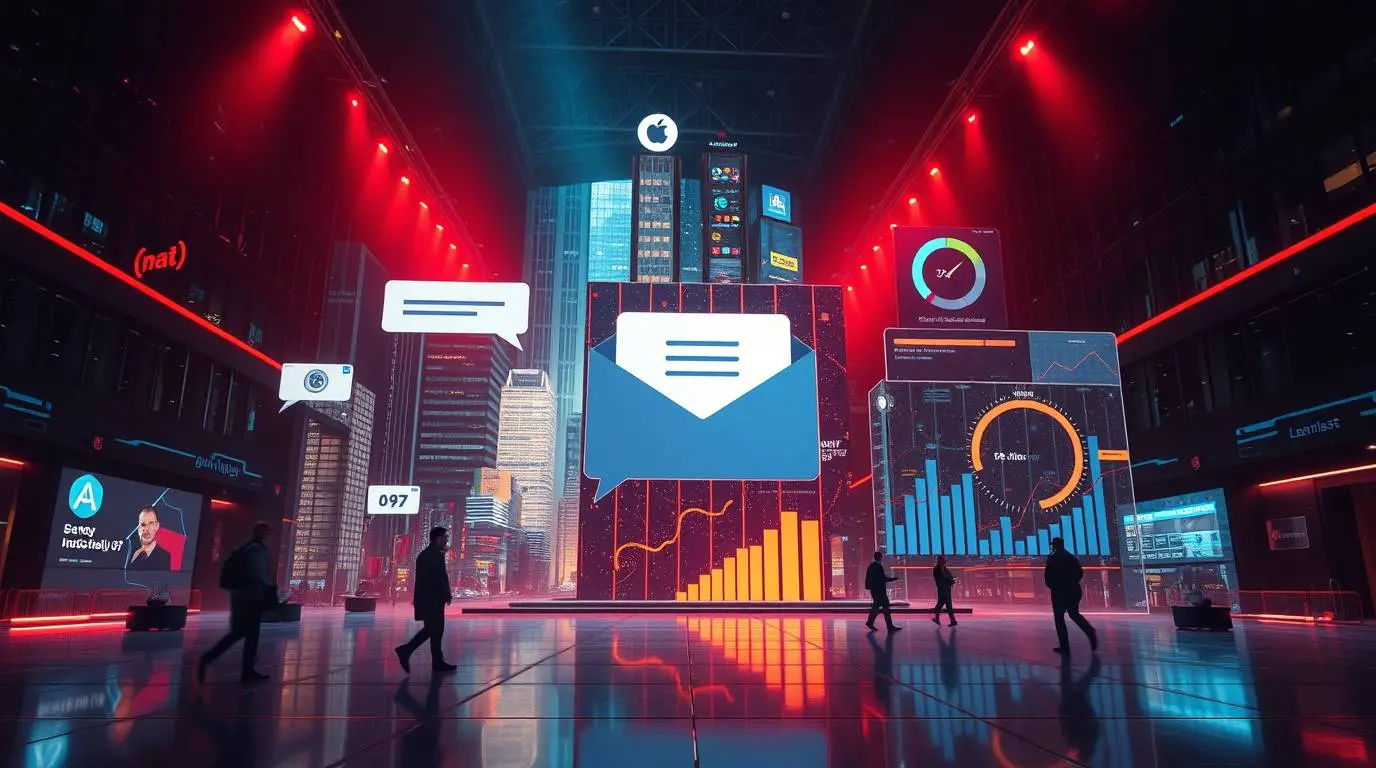
Not all leads are created equal. AI marketing automation tools can analyze thousands of data points to determine which leads are most likely to convert, allowing you to focus your efforts on the most promising prospects.
This technology examines factors like website behavior, engagement with previous communications, demographic information, and even social media activity to assign a likelihood-to-convert score to each lead.
Marketo Engage (by Adobe) excels at intent-driven targeting, helping businesses prioritize their sales efforts for maximum ROI.
Creating high-quality content consistently is one of the biggest challenges for marketers. AI content tools can now:
I use Jasper to create first drafts of my marketing emails and social posts, which I then personalize with my brand voice. This has cut my content creation time by more than 50%. For SEO optimization, Surfer SEO analyzes top-ranking content and provides real-time recommendations to improve your content’s search performance.
AI excels at identifying patterns in customer data that humans might miss. Advanced segmentation powered by AI can divide your audience into highly specific groups based on behavior, preferences, purchase history, and engagement patterns.
This allows for hyper-targeted marketing campaigns that speak directly to each segment’s specific needs and pain points. Salesforce Marketing Cloud uses AI-driven customer segmentation to help businesses create these deeply personalized marketing experiences.
Traditional A/B testing is limited by human bandwidth—you can only test so many variables at once. AI-powered tools can simultaneously test countless variations of headlines, images, call-to-action buttons, and other elements to identify the winning combination.
The most impressive part is that these systems continuously learn and adapt, so your marketing assets keep improving over time without manual intervention. This “set it and optimize it” approach delivers continuously improving results.
AI has revolutionized paid advertising by automating bid management, budget allocation, audience targeting, and ad creative testing. Modern AI ad management tools can:
Smartly.io offers AI-powered social media advertising automation that optimizes campaigns across multiple platforms simultaneously, ensuring your ad budget generates maximum returns.
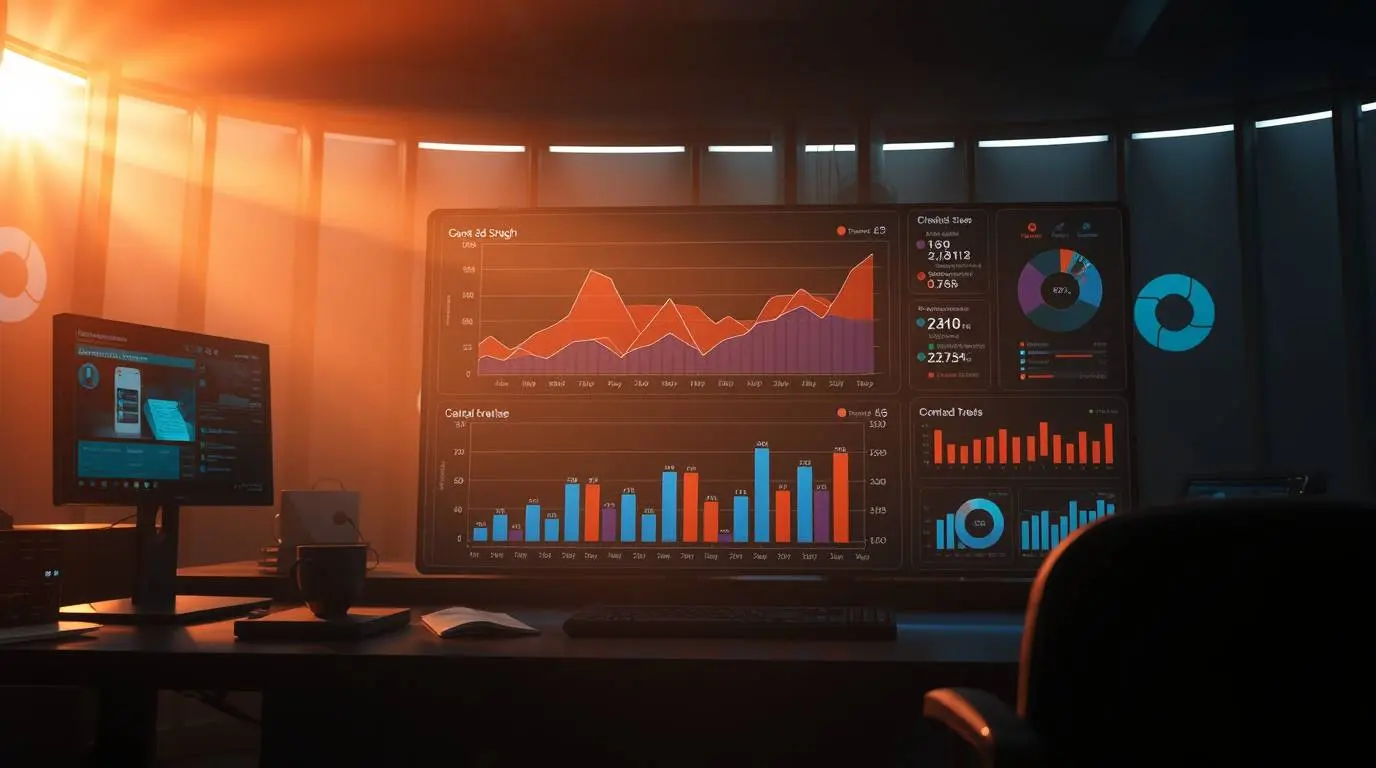
With the growing popularity of voice assistants like Alexa and Google Assistant, optimizing for voice search has become crucial. AI tools can analyze voice search patterns and help optimize your content to appear in voice search results.
This typically involves focusing on conversational long-tail keywords and questions that people might ask their voice assistants. AI SEO tools can identify these opportunities and help you create content that answers these specific queries.
Understanding the customer journey is essential for effective marketing, but mapping these journeys manually is complex and time-consuming. AI tools can analyze customer interactions across all touchpoints to automatically create detailed journey maps.
These tools identify common paths to purchase, potential friction points, and opportunities for intervention. By understanding these journeys, you can create targeted automations that address specific needs at each stage of the funnel.
AI excels at analyzing vast amounts of data to identify emerging trends before they become obvious. This gives marketers a significant competitive advantage by allowing them to create content and campaigns around topics that are just beginning to gain traction.
For freelancers and side hustlers looking to establish authority in their niche, being early to emerging trends can dramatically increase visibility and position you as a thought leader. This is one of the ways I’ve been able to make money with AI by staying ahead of industry developments.
Keeping tabs on competitors’ marketing activities is crucial but time-consuming. AI tools can now monitor competitors’ websites, social media, email campaigns, and ad strategies to provide actionable competitive intelligence automatically.
These insights help you identify gaps in the market, opportunities for differentiation, and effective strategies you might want to adapt for your own business.
Video content delivers exceptional engagement, but creating personalized videos at scale seemed impossible—until AI entered the picture. New AI video tools can generate personalized videos with customized elements like the viewer’s name, company, or specific pain points.
This technology is particularly effective for sales outreach and customer onboarding, with personalized videos generating significantly higher engagement than generic alternatives.

Cart abandonment and website bounce are frustrating realities of digital marketing. AI retargeting tools analyze user behavior to determine why people left and what might bring them back.
Instead of generic “You forgot something!” messages, AI-powered abandonment recovery can offer personalized incentives based on the specific barrier that likely prevented conversion.
The most immediate benefit of AI marketing automation is the dramatic reduction in time spent on repetitive tasks. For freelancers and side hustlers, this time savings is invaluable—it allows you to focus on high-value creative work and strategy while AI handles the execution.
I’ve personally reclaimed about 15 hours per week by implementing AI marketing automation, which I now use for client relationship building and developing new AI business ideas.
The modern consumer expects personalized experiences, but delivering this personalization manually is impossible at scale. AI marketing automation makes true one-to-one marketing possible by analyzing individual preferences and behaviors to deliver tailored content, recommendations, and offers.
According to McKinsey, companies that excel at personalization generate 40% more revenue from these efforts than average players.
AI marketing tools continuously analyze performance data and provide actionable insights that help improve future campaigns. Rather than making decisions based on gut feeling or limited data points, AI gives you comprehensive performance analysis that identifies what’s working and what isn’t.
This allows for more confident decision-making and continuous optimization of your marketing strategy.
By targeting the right people with the right message at the right time, AI marketing automation significantly improves conversion rates and ROI. The elimination of wasted ad spend and ineffective content results in higher returns on your marketing investment.
A Salesforce study found that businesses using AI for marketing reported an average 37% increase in conversion rates after implementing these technologies.
| Traditional Marketing Automation | AI Marketing Automation |
|---|---|
| Rules-based triggers | Learning algorithms that adapt |
| Segment-level personalization | Individual-level personalization |
| Scheduled content delivery | Optimal-time content delivery |
| Manual A/B testing | Continuous multivariate testing |
| Periodic manual optimization | Real-time automatic optimization |
| Limited customer insights | Deep behavioral analysis |

The effectiveness of AI marketing tools depends heavily on the quality and quantity of data they can access. Many businesses struggle with scattered data across multiple platforms or poor-quality data that leads to inaccurate insights.
Solution: Start by auditing your current data sources and implementing a unified customer data platform. Focus on collecting clean, consistent data before scaling your AI marketing efforts.
Many marketing professionals feel intimidated by AI technologies and worry about the learning curve associated with these tools.
Solution: Most modern AI marketing platforms are designed with user-friendliness in mind. Start with simple use cases and gradually expand your AI marketing stack as your comfort level increases. Many platforms offer excellent tutorials and support communities to help you get started.
As marketing becomes more personalized, consumers are increasingly concerned about how their data is being used. Regulatory frameworks like GDPR and CCPA have raised the stakes for compliance.
Solution: Be transparent about data collection and use. Implement strong data governance policies and make privacy a competitive advantage by clearly communicating your ethical approach to personalization.
The biggest mistake I see beginners make is trying to implement too many AI tools at once. Instead, identify one area of your marketing that consumes the most time or delivers suboptimal results, and implement an AI solution for that specific challenge.
Once you’ve mastered that tool and seen results, expand to other areas of your marketing stack. This approach prevents overwhelm and allows you to clearly measure the impact of each new tool.
Before investing in any AI marketing tool, ensure it integrates well with your existing technology stack. Isolated tools create data silos that undermine the effectiveness of your automation efforts.
Look for platforms with robust API capabilities and pre-built integrations with your current CRM, email platform, and analytics tools. Zapier can be incredibly helpful for connecting tools that don’t have native integrations.
Define specific, measurable outcomes you expect from your AI marketing automation implementation. Whether it’s reducing time spent on specific tasks, increasing conversion rates, or improving customer retention, having clear metrics will help you evaluate the ROI of your investment.
For freelancers and side hustlers, time savings can be just as valuable as direct revenue increases. Don’t overlook efficiency metrics when evaluating success.
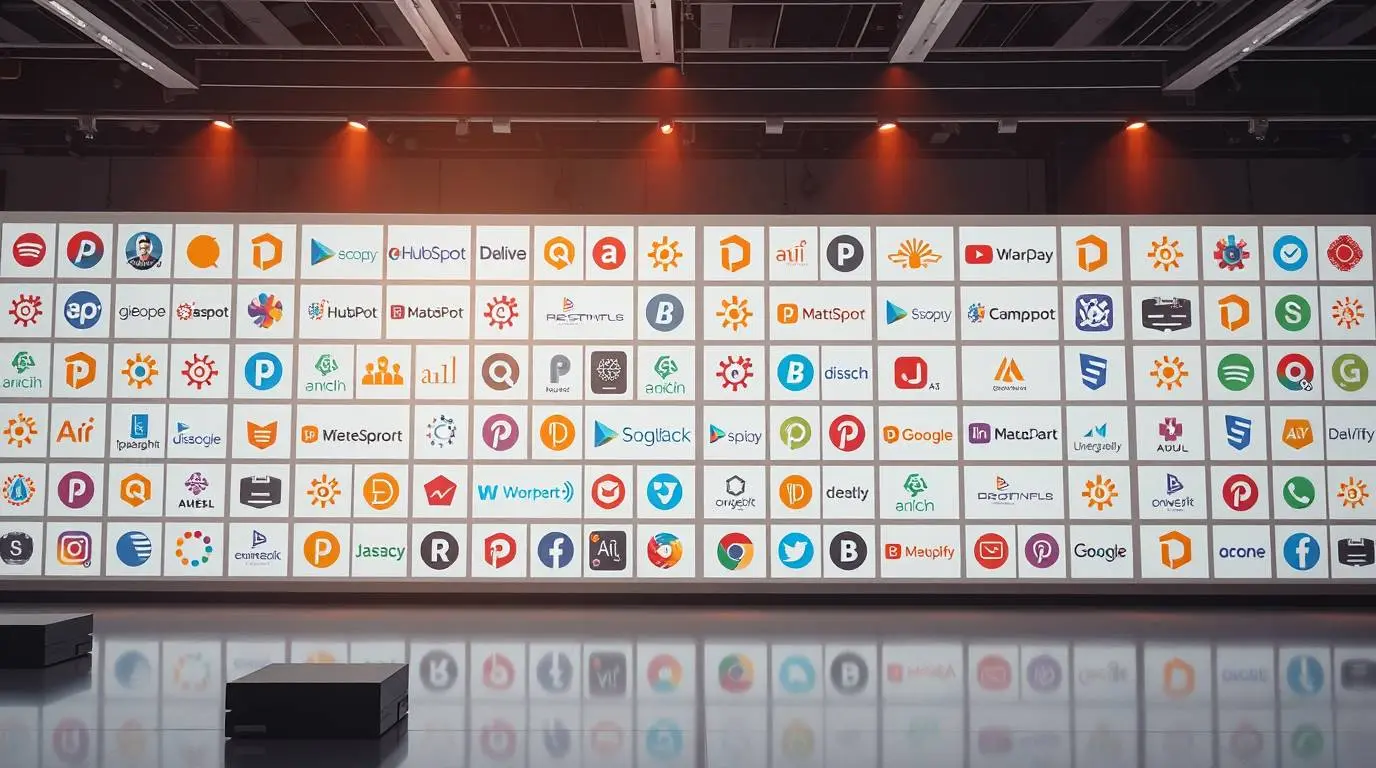
Based on my experience and industry analysis, here are the top AI marketing automation tools that offer exceptional value, particularly for freelancers, side hustlers, and those new to AI tools:
For those interested in expanding their toolkit beyond marketing, check out AI content creation tools and AI side hustles that can complement your marketing efforts.
The field of AI marketing automation is evolving rapidly. Here are some emerging trends to watch:
For freelancers and side hustlers, staying ahead of these trends presents enormous opportunities. Those who master AI marketing automation now will be perfectly positioned to leverage these emerging capabilities as they evolve.
I’ve found that following experts in AI affiliate marketing and AI YouTube automation helps me stay informed about cutting-edge applications of these technologies.
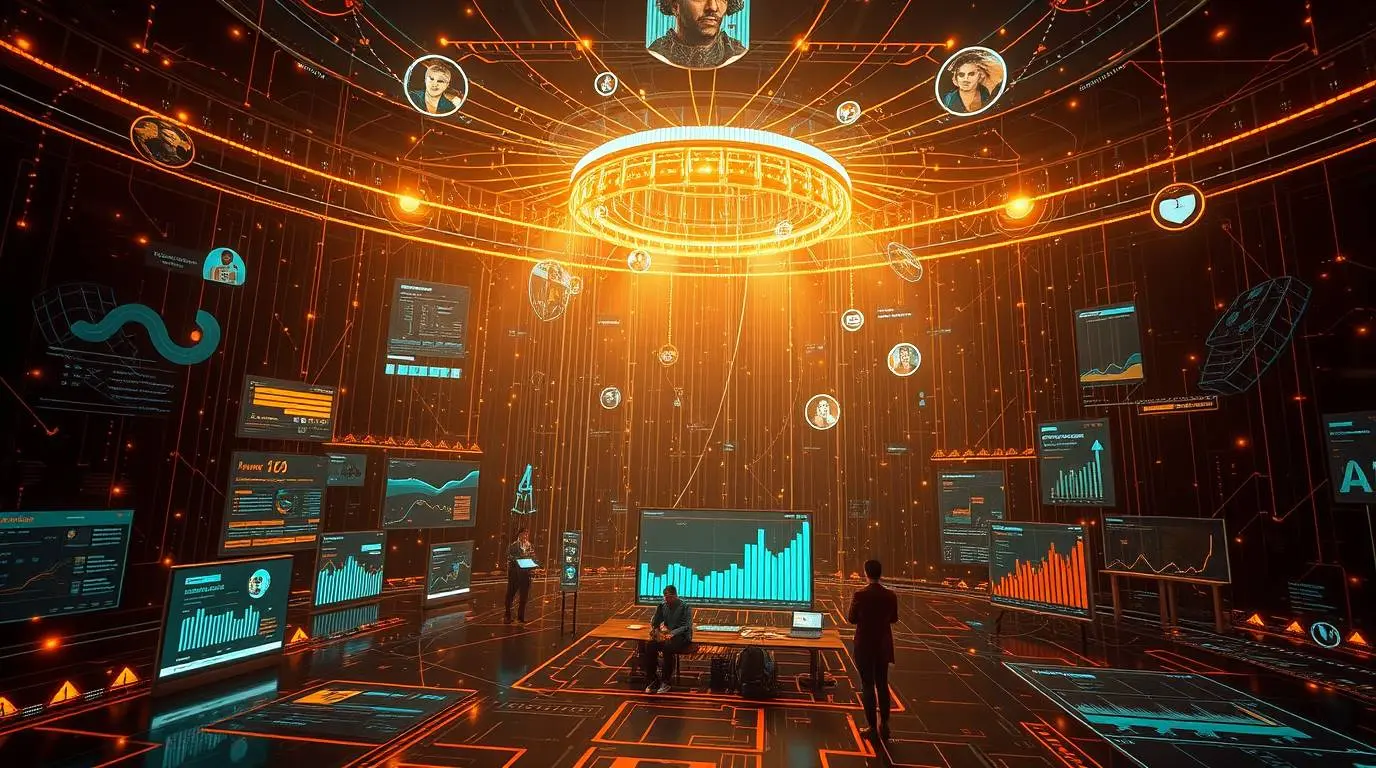
The businesses that thrive in the coming years won’t be those with the largest marketing teams—they’ll be the ones that most effectively leverage AI to amplify their marketing efforts. For freelancers and side hustlers, AI marketing automation is the great equalizer, allowing you to compete with much larger organizations by working smarter, not harder.
Starting with even one AI marketing tool can dramatically improve your efficiency and results. Begin by identifying your biggest marketing challenge, selecting an appropriate AI solution, and measuring the impact. Then expand your AI marketing stack as your comfort and capabilities grow.
The question isn’t whether you should implement AI marketing automation—it’s how quickly you can get started before your competitors do the same.
Ready to take your marketing to the next level with AI? Explore our guides on AI passive income strategies and AI freelance services to discover even more ways to leverage artificial intelligence in your business.
What marketing task would you most like to automate with AI? Share your thoughts in the comments below!